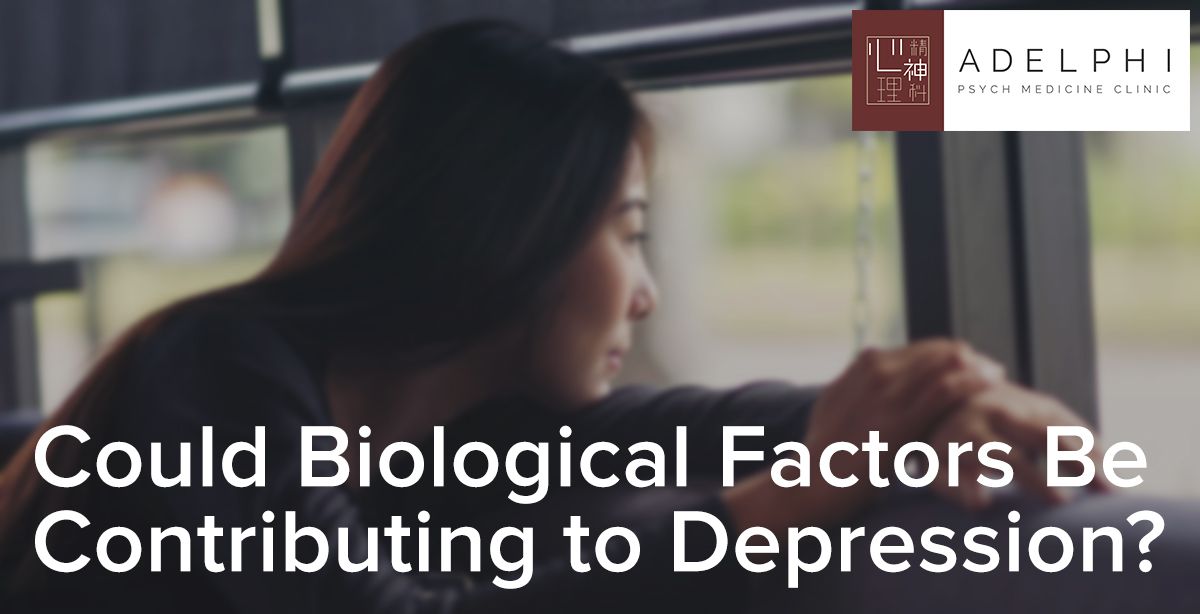
The scientific community is working hard to discover the mechanism of depression onset, eventually coming up with preventative and better treatment methods. Luckily, advances have been made in that direction, identifying a potential biological component that could be contributing to the condition.
The Biology of Depression
A team of researchers from Spain’s Department of Human Physiology at University of Malaga has identified a new mechanism that contributes to one of the key characteristics of clinical depression.
Scientifically, this characteristic is called anhedonia. It refers to the complete lack of pleasure derived from things that used to be enjoyable or rewarding in the past.
Researchers focused on a neurological signalling molecule called galanin. Galanin plays an important role in regulating our emotional responses and previous research suggests that it is linked to both anxiety and depression.
Through the research, the Spanish scientists confirmed that galanin plays a role in anhedonia. In an animal study, galanin was administered to rats and it contributed to strong symptoms of anhedonia. Previously, the animals responded to saccharine as an appetite stimulant. Following the administration of galanin, the interest in consuming saccharine went down significantly.
The results of the clinical trial were published in the Journal of Psychopharmacology. Researchers concluded that galanin administration reduced the activity of brain reward circuits in rats, making them less responsive to food that was previously appetising.
Some see the discovery as relatively minor, especially due to the fact that the clinical trial involved rats. Still, getting a better idea about how galanin affects the brain could potentially unlock mechanisms for the prevention of anhedonia. Based on this information, various therapeutic strategies for the treatment of anxiety and depression could be developed.
How Is Depression Currently Treated?
Psychotherapy and medications are the core of contemporary depression treatments.
Antidepressants are ranked under several categories on the basis of their effect.
Selective serotonin re-uptake inhibitors rank among the medications most commonly prescribed for the treatment of depression. SSRIs are considered safer than other antidepressants and they produce fewer side effects. Launched in the 1980s, SSRIs currently feature the largest selection of pharmaceutical products.
These drugs work by decreasing serotonin re-uptake in the brain. Thus, more serotonin is available and the brain increases its ability to send and receive messages. As a result, patients experience mood stabilisation.
Serotonin and noradrenalin re-uptake inhibitors are a newer class of antidepressants. These medications increase the levels of both serotonin and noradrenalin – two key neurotransmitters that play a role in mood stabilisation.
Tricyclic antidepressants are an older class of drug and they’ve been known to produce more side effects than SSRIs and SNNIs. These antidepressants were introduced in the 1950s and while still considered effective, they’re not prescribed as often as the more modern types of drugs.
Many other classes of older drugs also exist – monoamine oxidase inhibitors, dopamine re-uptake blockers, tetracyclic antidepressants and many others. None of these medications, however, have an effect on galanin production or quantities.
The scientific discovery of the Spanish academic team provides a whole host of opportunities for the development of innovative antidepressants that utilise a brand new mechanism to ensure mood stabilisation.
Depression in Singapore: More Common Than You Think
Psychiatrists and psychologists in Singapore are also working hard to offer patients innovative and reliable treatment options for depression.
Depression in Singapore is much more common than many people believe it to be.
According to the Institute of Mental Health, 5.8 per cent of the Singaporean population has suffered from major depressive disorder in their lifetime.
Depression is more common among women in Singapore but it can affect people of all ages and walks of life. Certain life events are likely to serve as triggers and increase the risk of suffering from depression or anxiety – the death of a loved one, breakups, serious medical problems, prolonged unemployment, etc.
Mental disorders are particularly common in Singapore – they affect one in seven people. The top three conditions include major depressive disorder, alcohol abuse and obsessive compulsive disorder, the Singapore Mental Health Study suggests.
While the number is lower than mental health statistics for Western countries, the study points to one quite troubling trend. The percentage of people in Singapore who refrain seeking help for their mental health problem remains high.
Of all individuals surveyed, 78.4 per cent reported that they were not seeking professional help for their mental health problem. Luckily, those seeking help were doing so earlier than in the case of previous studies. In the past, Singaporeans waited four years before seeking a treatment for depression. The latest study suggested that the waiting time went down to just one year.
Taking antidepressants isn’t the only option that can deliver good results.
Regulars consultations with a mental health professional in Singapore can also prove to be beneficial. Psychiatrists and psychologists in Singapore employ various approaches to address major depressive disorder. Talking things through with a trained therapist can provide a sense of relief. In addition, these sessions equip people with the tools needed to control emotions and negative thoughts for a profound mood stabilisation.
Psychotherapy and antidepressants will often work together to deliver a comprehensive, long-term result.
Relaxation therapy, participation in support groups and even physical activity could also be suggested as effective methods for coping with depression.
If you believe you may be suffering from depression (rather than just sad thoughts), you should not postpone the selection of a good treatment option. Mental health problems are normal and widespread. The sooner you seek assistance, the better the results you’re going to get.
Adelphi Psych Medicine Clinic specialises in the treatment of depression. The solution is personalised and it could consist of psychotherapy, medications and social help to reduce stress levels. The Adelphi therapists put together holistic treatments, including breakthrough treatment options based on the latest findings about depression.
While it’s not easy to talk about your feelings and negative experiences, the relief is going to be tremendous once you open up.
You can contact Adelphi by filling out the online form and telling us a bit more about what’s troubling you. We will take it from there.
By Adelphi Psych Medicine Clinic


